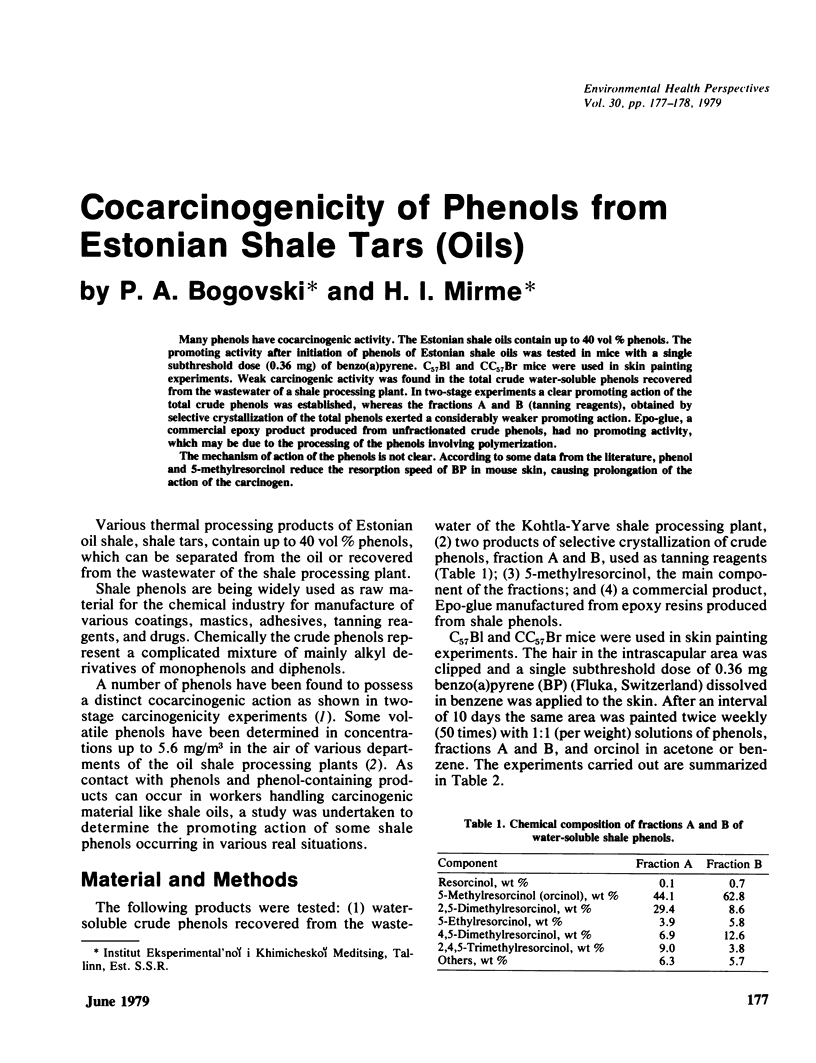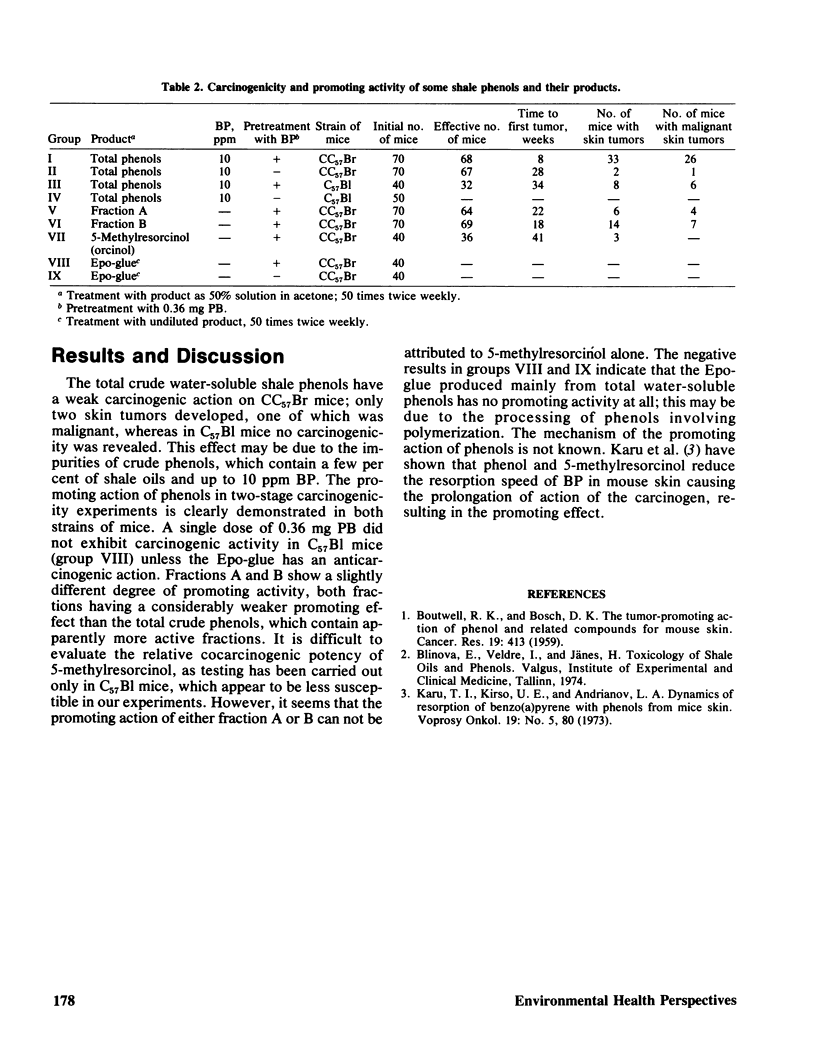Abstract
Many phenols have carcinogenic activity. The Estonian shale oils contain up to 40 vol % phenols. The promoting activity after initiation of phenols of Estonian shale oils was tested in mice with a single subthreshold dose (0.36 mg) of benzo(a)pyrene. C57Bl and CC57Br mice were used in skin painting experiments. Weak carcinogenic activity was found in the total crude water-soluble phenols recovered from the wastewater of a shale processing plant. In two-stage experiments a clear promoting action of the total crude phenols was established, whereas the fractions A and B (training reagents), obtained by selective crystallization of the total phenols exerted a considerably weaker promoting action. Epo-glue, a commercial epoxy product produced from unfractionated crude phenols, had no promoting activity, which may be due to the processing of the phenols involving polymerization. The mechanism of action of phenols is not clear. According to some data from the literature, phenol and 5-methylresorcinol reduce the resorption speed of BP in mouse skin, causing prolongation of the action fo the carcinogen.
Full text
PDF

Selected References
These references are in PubMed. This may not be the complete list of references from this article.
- BOUTWELL R. K., BOSCH D. K. The tumor-promoting action of phenol and related compounds for mouse skin. Cancer Res. 1959 May;19(4):413–424. [PubMed] [Google Scholar]


